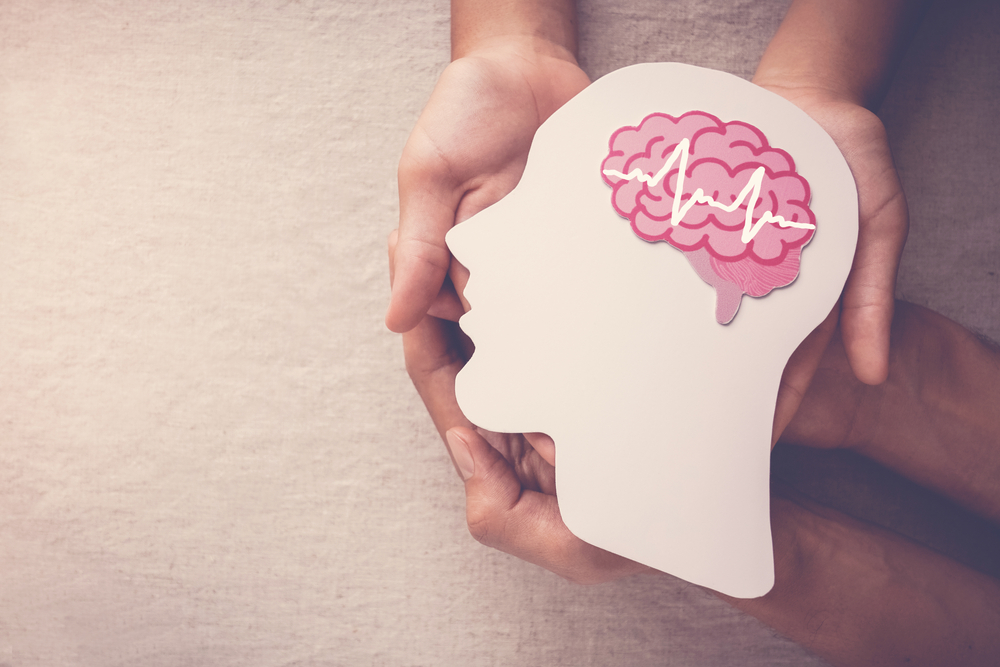
Written by:
Last Updated:
October 1st, 2025
What is a dual diagnosis?
A dual diagnosis means a person is living with both a mental health condition and a substance use disorder at the same time. It’s a lot more common than people realise and when both issues are present, recovery often requires a more tailored, long-term approach.
There are a couple of ways this can happen. Sometimes the mental health condition appears first and someone turns to drugs or alcohol to try and cope. Other times, drug or alcohol use starts first, only to bring mental health symptoms to the surface or make existing ones worse.
Whichever way it begins, the two issues can quickly become entangled, making it difficult to treat one without addressing the other. This sets the stage for what’s known as dual diagnosis and why integrated treatment matters.
The link between addiction and mental health issues
Worrying research shows that around half of all people who experience a mental illness will also experience a substance use disorder (SUD) at some point in their lives. The reverse is also true. This relationship is far more common than many people assume.
Whether it’s anxiety, depression, bipolar disorder, schizophrenia or a personality disorder, the rates of overlap with addiction are striking. People with mental health disorders may turn to substances in an attempt to soothe distressing symptoms. But on the other hand, substance use can also trigger or worsen underlying mental health issues. It becomes a cycle that’s hard to escape without the right kind of support.
For instance:
- Over 60% of adolescents in community-based addiction treatment also meet the criteria for a mental illness.
- Adults with serious mental illnesses like major depression, schizophrenia or bipolar disorder are significantly more likely to develop substance use disorders.
- ADHD, PTSD, borderline personality disorder and anxiety disorders are all frequently seen alongside addiction.
When both addiction and a mental health condition are present, treating just one rarely leads to full recovery. Left unaddressed, the untreated condition can easily cause relapse or ongoing difficulties. That’s why any meaningful recovery plan must look at both sides of the story.
Common dual diagnosis combinations
There are various mental health conditions that can simultaneously occur alongside a drug or alcohol addiction, some of the most common being;
- Anxiety and addiction
- Bipolar and addiction
- Depression and addiction
- OCD and addiction
- PTSD and addiction
Risk factors for developing a dual diagnosis
While anyone can develop a dual diagnosis, there are certain risk factors that can make it more likely. These factors don’t guarantee someone will struggle with both addiction and mental health issues but they can increase vulnerability, especially when multiple influences are at play.
How are dual diagnoses treated in addiction recovery?
At Primrose Lodge, we know that treating a dual diagnosis takes more than just addressing the addiction on its own. When mental health issues and substance use are connected, real recovery means treating both together. That’s why our programmes are built around integrated care that looks at the full picture.
It starts with a detailed assessment so we can understand the mental health symptoms you may be living with, such as depression, anxiety, PTSD or bipolar disorder and how they connect with your alcohol or drug use. From there, we tailor a treatment plan that gives equal attention to both.
Below, we’ve created an easy to understand table clearly highlighting the different therapies used and how they help with both addiction and mental health issues.
|
Therapy |
What it is | How it helps with addiction recovery |
How it helps with mental health issues |
| Cognitive Behavioural Therapy (CBT) | A structured, goal-focused therapy that helps identify and change unhelpful thinking patterns. | Helps uncover thought patterns and triggers behind substance use and build healthier coping strategies. | Reduces symptoms of anxiety and depression by addressing distorted or negative thinking. |
| Dialectical Behaviour Therapy (DBT) | A form of CBT that focuses on emotional regulation, distress tolerance and mindfulness. | Useful for those who struggle with intense cravings, emotional relapse or impulsive behaviours. | Particularly helpful for conditions like borderline personality disorder and PTSD. |
| One-to-One Counselling | Personalised sessions with a therapist to explore deep-rooted issues privately. | Offers a safe space to talk openly about trauma, triggers and past behaviours linked to addiction. | Encourages emotional processing, self-awareness and relief from internal conflict. |
| Group Therapy | Guided sessions with others in recovery, led by a qualified therapist. | Builds connection, accountability and shared understanding, reducing feelings of isolation. | Helps reduce social withdrawal and offers peer support for managing mental health symptoms. |
| Holistic Therapies (Yoga, art, meditation) | Creative and body-based therapies that support overall wellbeing. | Reduces stress, improves self-regulation and supports emotional grounding throughout recovery. | Helps manage anxiety, boosts mood and encourages expression of difficult emotions in non-verbal ways. |
It’s also worth noting that if the substance addiction requires a medical detox, this would need to be addressed as a first step. At Primrose Lodge, we have the facilities and support in place to guide you through this challenging stage with care and expertise.
What are the next steps?
If you or someone you care about is struggling with both addiction and mental health issues, reaching out could be the most important step you take. As much as we’d like to think we can fix things on our own or fix our loved ones, dual diagnosis is complex and often needs professional care.
At Primrose Lodge, we’re experienced in treating both sides of the struggle with compassion and expertise. You don’t have to face this alone, and neither do your loved ones. Contact us today to speak with someone who understands and can guide you towards the right support.
(Click here to see works cited)
- Common Comorbidities with Substance Use Disorders Research Report. Bethesda (MD): National Institutes on Drug Abuse (US); 2020 Apr. Available from: https://www.ncbi.nlm.nih.gov/books/NBK571451/





